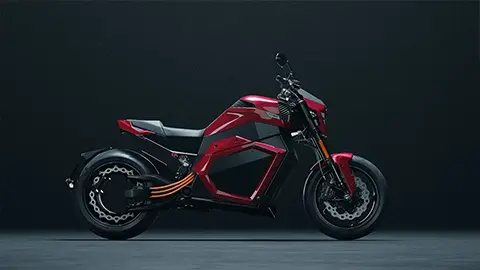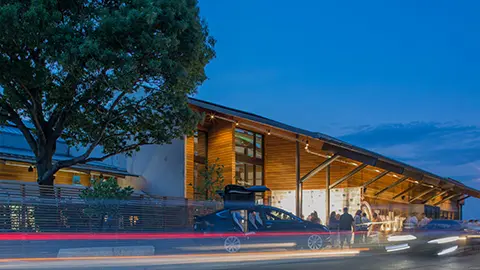New Legislation to Drive EV Adoption
New Jersey is the latest U.S. state to announce an effective ban on the sale of new internal combustion vehicles by 2035. The state’s Department of Environmental Protection announced new legislation, called the Advanced Clean Cars II rule. Set to be adopted on December 18, it will require 100 percent of new light-duty vehicles sold in the state by 2035 to be zero-emissions. Zero-emissions targets for new-vehicle manufacturers begin in 2027, ramping up to 100 percent progressively.

Improving Air Quality
The state says that the new legislation sets New Jersey on the road toward better air quality and cleaner choices for new vehicle buyers as it continues to combat the climate crisis.
“By filing the landmark Advanced Clean Cars II rule, New Jersey builds upon its standing as a national leader in climate action and its participation in the global Accelerating to Zero commitment,” said New Jersey governor Phil Murphy. “The steps we take today to lower emissions will improve air quality and mitigate climate impacts for generations to come, all while increasing access to cleaner car choices. Indeed, together with my Administration’s continuing investments in voluntary electric vehicle incentives, charging infrastructure, and the green economy, these new standards will preserve consumer choice and promote affordability for hardworking New Jerseyans across the state.”

Does Not Outlaw Gasoline Cars
Importantly, while New Jersey’s new legislation ramps up the requirements for new vehicles to reach 100 percent zero-emissions by 2035, it does not impose any restrictions on used vehicles, or outlaw the use of gasoline or diesel, which will continue to be part of the transportation mix for decades to come. The new rule does not ban gasoline cars, nor does it force consumers to buy EVs.
Traditional gasoline and diesel vehicles on the road now already have to meet stringent emissions standards, and will be replaced by zero-emissions vehicles over time – without requiring drivers to give up their vehicles and shoulder the expense of switching to a new technology. Many of these vehicles are already hybrids or plug-in hybrids. Consumers and car dealers have no new obligations under the new legislation, which is targeted at manufacturers increasing their share of electric vehicles on state roads.
The new rule takes effect starting in 2027, which the New Jersey government says will provide ample time for automakers to accelerate their transition to zero-emissions. It also provides time to ramp up the continued development of charging infrastructure in the state, as well as a more robust and cleaner electrical grid. The state says the new rule will provide stability and certainty for automakers, suppliers, utilities, and infrastructure companies to make long-term investments that will facilitate large-scale deployment ZEVs.
New Jersey Mandate: Focus on Light Duty Vehicles
New Jersey’s new legislation is focused on light-duty vehicles, such as passenger cars, SUVs, and pickup trucks. Larger commercial vehicles like heavy-duty trucks and 18-wheelers have their own targets to meet. While diesel will be an important part of the fuel mix for heavy duty use for many years to come, large investments are being made across the country to build out hydrogen fueling infrastructure for big trucks. Many manufacturers already offer hydrogen fuel cell heavy duty models in limited numbers, which offer similar capability and range to conventional trucks but with zero emissions.
Emissions from transportation are the largest source of pollution – accounting for about 37 percent of emissions in New Jersey. By increasing zero-emissions vehicle sales, the state will also reduce emissions of localized air pollution from CO2, nitrogen oxides (NOx) and fine particulate matter, which should provide important health benefits, especially in urban areas.

Improving Targets and Increasing Sales
With the new rule, vehicle manufacturers must ensure that 43% of their annual production volume in 2027 is zero-emissions. The percentage increases each year, peaking at 100 percent in 2035 and thereafter.
The Advanced Clean Car II rule is an evolution of rules already adopted by New Jersey in 2006 – which incorporated California’s zero-emissions requirements as well as emissions-control standards for cars and light duty trucks from model year 2009.
Meanwhile, demand for electric vehicles continues to rise in the state. The number of EVs in New Jersey has grown to more than 123,000 – about 12 percent of new vehicle sales, 50 percent higher than the national share of approximately 8 percent. Since December 2022, sales of EVs in the state have surged by 50 percent.
















